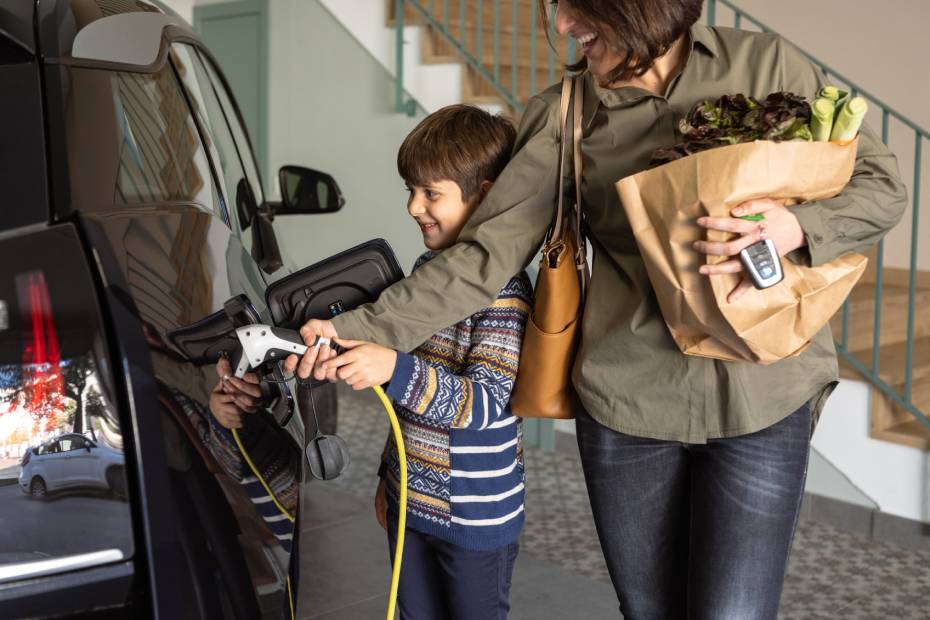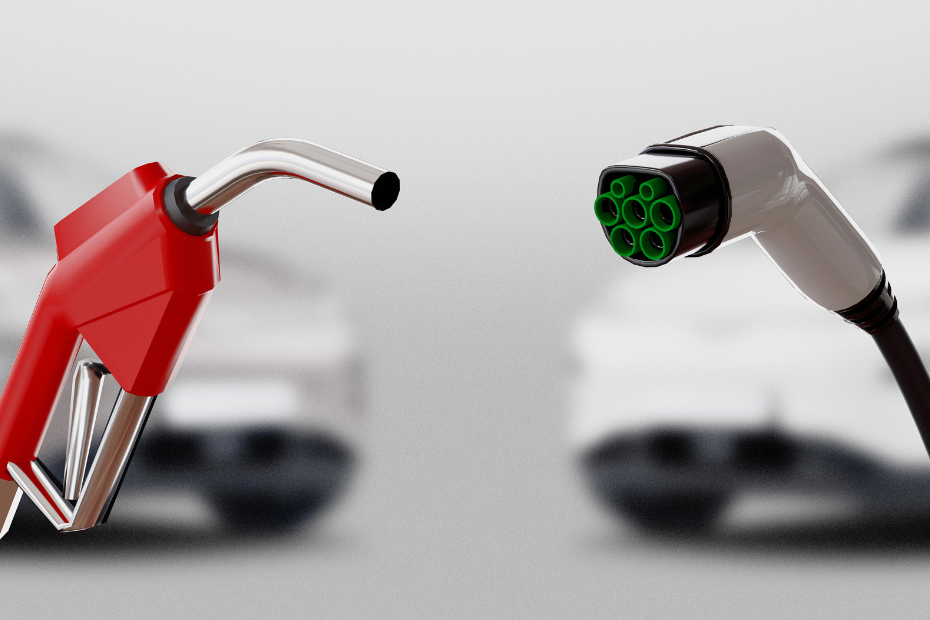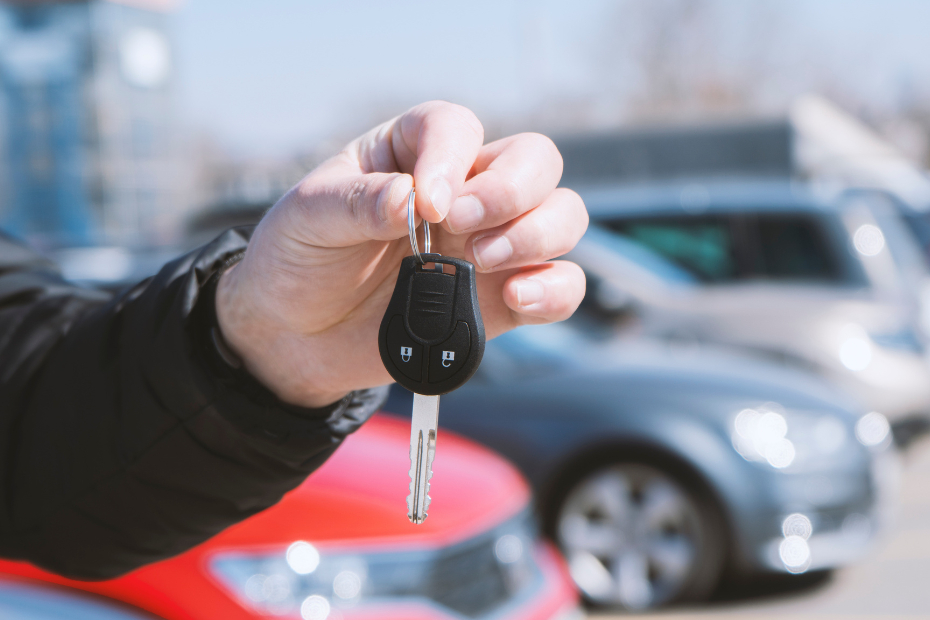Published April 14, 2023 • 4 Min Read
Perhaps the biggest draw of going electric is leaving the gas pump behind. Electric vehicle (EV) owners can fully charge their vehicles from home, which may be a more convenient and environmentally friendly choice.
Your optimal EV charging option will depend on your budget, lifestyle, and local infrastructure.
Here are the most important things to consider before buying an at-home charger.
Why charge at home?
At-home chargers aren’t necessary for EV owners. Public charging options are mostly free (pay-per-use charging stations only cost $2.50 per charge on average). The infrastructure around EVs is improving rapidly as well. In 2022, the government of Canada pledged to fund the installation of 50,000 new EV charging stations around the country in the parking lots of gas stations, condos, malls and even grocery stores by 2030.
That being said, the allure of being able to plug in your car overnight and have it fully charged by the morning is a major selling point of at-home chargers. It’s also a good way of dealing with “range anxiety” — the fear of being stranded between charging stations because you ran out of power. While there is a commitment towards building more charging stations, many cities and towns may not have enough yet to grant EV owners peace of mind.
Types of at-home EV chargers: The basics
There are three types or “levels” of at-home EV chargers available on the market.
-
Level 1 chargers connect directly to a standard outlet that you would have in your garage — no complex installation process is necessary. However, these chargers can be slower than other options. It typically takes between 12 and 20 hours to fully charge a battery (6 to 12 hours if you’re charging a plug-in hybrid vehicle), charging enough for 8 km per hour.
-
Level 1 chargers typically cost between $300 and $600.
-
-
Level 2 chargers connect to a 240-watt outlet — double that of a standard outlet. This will get your EV up to full charge in 6 to 14 hours (4 to 8 hours for a plug-in hybrid) at a range of 30 km per hour. The extra energy needed requires an installation process that an electrician should do.
-
Depending on quality, level 2 chargers cost between $500 and $4,000, with installation fees between $600 and $1,000.
-
-
Level 3 chargers, or “fast chargers,” use a direct current connection to an electrical system, typically found in businesses and common areas. It only takes 1-4 hours to fully charge an EV (15 minutes to 3 hours for a plug-in hybrid) at a rate of nearly 200 km per hour. While installing a level 3 charger in your home is possible, it may be expensive due to installation, electricity, and maintenance fees.
-
Level 3 chargers can cost between $16,000 and $48,000 per unit.
-
Extra features for home EV charging stations
There are various extra features available for home charging stations, depending on the model and your personal preferences:
-
Dual-port charging allows for two EVs to charge simultaneously if there is sufficient electrical capacity.
-
Outdoor chargers are able to work in rain, snow and freezing temperatures, allowing you to install them outside.
-
Extra amperage increases the speed of your charge. Level 2 chargers typically range between 15-80 amps, so you can use that as a baseline to ensure you get the fastest charge available.
-
An internet connection allows you to start, stop and monitor the charging of your EV from your smartphone or computer.
-
“Smart chargers” can optimize your charging efficiency by automatically adjusting the electricity sent to your EV based on timing and load factors.
Installing an at-home EV charger
Level 1 chargers require no installation, but level 2 chargers are typically recommended as the optimal at-home charger. Installation isn’t necessary if you already have a 240-watt outlet in your home, but otherwise, they should be installed by an electrician. Before installing, you will need to check your model and ensure that you have the following:
-
240-watt electrical outlet
-
Correct plug type
-
Correct amperage setting
-
Enough cable to reach from the charger to the carport
Once you have the correct equipment, it can be helpful to consult your electrician about electrical permits, the amount of electricity required, and the optimal position of the vehicle while charging.
It is highly recommended that you get a safety officer to inspect your work before any wiring is concealed or connected to a power source.
After installation, many provinces have incentive programs that could refund up to 50 per cent of the total project fees (purchase and installation). You can see if you are eligible for these provincial rebates here.
Does an at-home EV charger require maintenance?
General maintenance of a level two charger includes storing cables securely, checking up on parts regularly, and keeping your equipment clean. The average warranty period for EV charging equipment is between 1 and 3 years — without a warranty, owners can expect to pay around $400 a year in maintenance.
This article is intended as general information only and is not to be relied upon as constituting legal, financial or other professional advice. A professional advisor should be consulted regarding your specific situation. Information presented is believed to be factual and up-to-date but we do not guarantee its accuracy and it should not be regarded as a complete analysis of the subjects discussed. All expressions of opinion reflect the judgment of the authors as of the date of publication and are subject to change. No endorsement of any third parties or their advice, opinions, information, products or services is expressly given or implied by Royal Bank of Canada or any of its affiliates.
Share This Article






